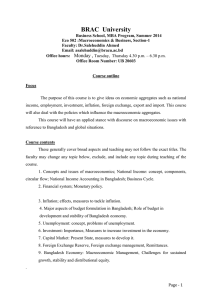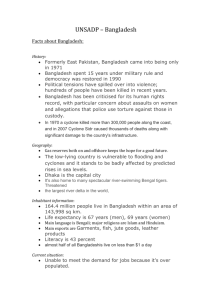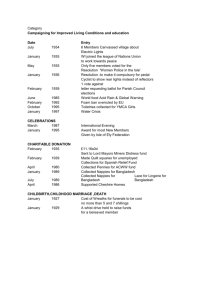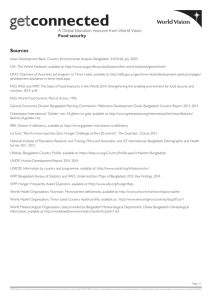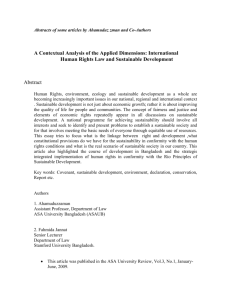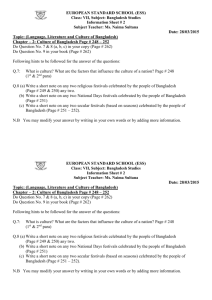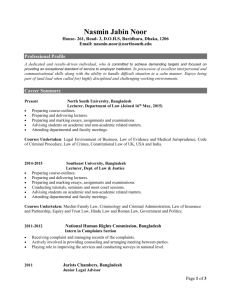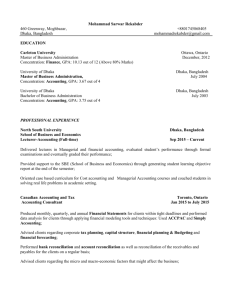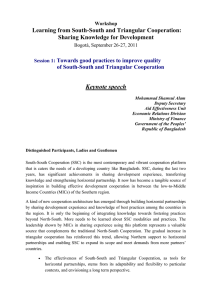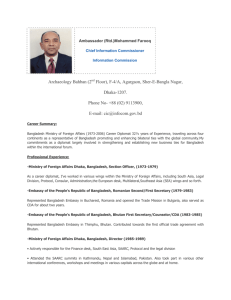10. The Empirical Evidence of Fisher Effect in Bangladesh
advertisement
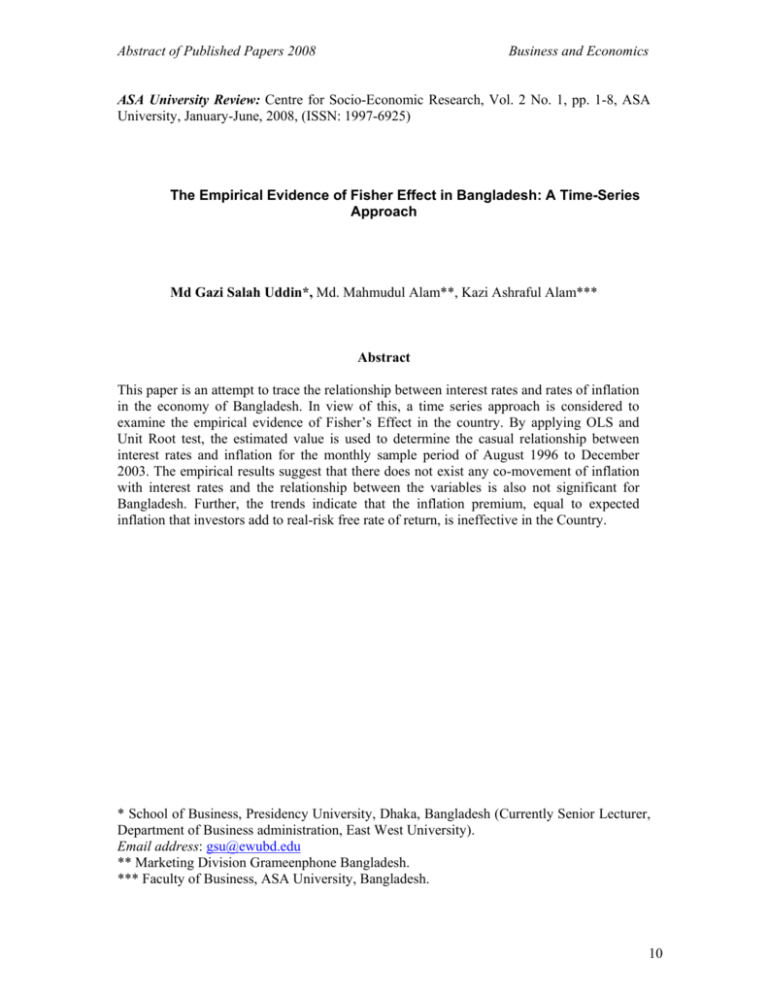
Abstract of Published Papers 2008 Business and Economics ASA University Review: Centre for Socio-Economic Research, Vol. 2 No. 1, pp. 1-8, ASA University, January-June, 2008, (ISSN: 1997-6925) The Empirical Evidence of Fisher Effect in Bangladesh: A Time-Series Approach Md Gazi Salah Uddin*, Md. Mahmudul Alam**, Kazi Ashraful Alam*** Abstract This paper is an attempt to trace the relationship between interest rates and rates of inflation in the economy of Bangladesh. In view of this, a time series approach is considered to examine the empirical evidence of Fisher’s Effect in the country. By applying OLS and Unit Root test, the estimated value is used to determine the casual relationship between interest rates and inflation for the monthly sample period of August 1996 to December 2003. The empirical results suggest that there does not exist any co-movement of inflation with interest rates and the relationship between the variables is also not significant for Bangladesh. Further, the trends indicate that the inflation premium, equal to expected inflation that investors add to real-risk free rate of return, is ineffective in the Country. * School of Business, Presidency University, Dhaka, Bangladesh (Currently Senior Lecturer, Department of Business administration, East West University). Email address: gsu@ewubd.edu ** Marketing Division Grameenphone Bangladesh. *** Faculty of Business, ASA University, Bangladesh. 10
